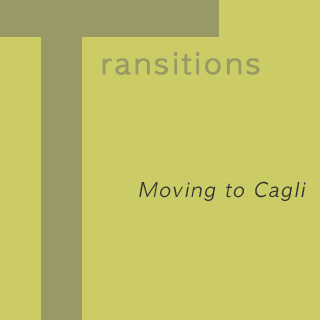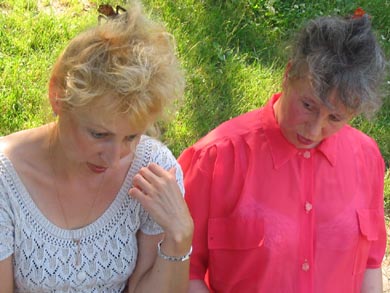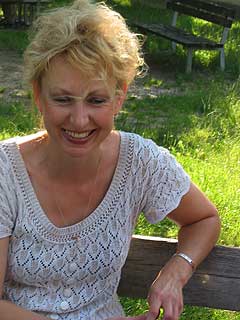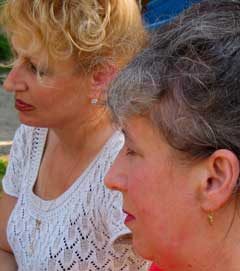


As in the United States, Europeans too relocate in order to find employment and financial stability. But instead of leaving one state or city for another, many elect to immigrate to new countries altogether, including Italy. What some Italians might view as an immigration problem has escalated in previous years due to the increased stability and prosperity of the Italian economy.
Cagli, a small mountain region town of 10,000, has felt this influx of new nationalities, faces, and languages. People from Ukraine, Albania and Morocco have all found their way to Cagli in search of a better life for themselves and those they left behind.
Some are highly educated people with degrees but are willing to work in less prestigious jobs in order to start a new life. Some are tradesmen and some assist the elderly. Some have their immediate families with them in Cagli, while others are finishing the exhausting paperwork that will allow their loved ones to join them.
One of the groups in Cagli that has recently rooted itself here is from Ukraine. About 30 people from this part of the former Soviet Union have found their way to Cagli and this group is noticeably different from the other ethnic groups - they are predominantly women.
Maria is joined by Katerina, whose true identity is being hidden due to her immigrant status, another of the 28 Ukrainian women working in Cagli, in a park on a summer afternoon. They sit next to each other under the shade of the trees and both women are eager to share their experiences of making the move to Italy. Katerina is dressed in a vibrant blue skirt and sand colored blouse and wears colorful makeup shades not usually seen in Cagli. Katerina too, is a caretaker for the elderly and not content with her job. They are a far cry from the usual nurses one would see in the United States. No teddy bear print and pastel-colored scrubs for them.



Because Maria and Katerina share the same kind of job, they can easily relate to one another and often have similar experiences with the people they help. Katerina previously cared for both the man and his wife, but after the woman passed away Katerina took over all of the chores of the house. While Maria wishes she had a free day during the week, Katerina has an entire day off to herself. But she said there is not a lot of time to socialize and Maria agreed, nodding her head. People in town are nice to them but there is little contact with others besides the elderly they help.
Katerina and Maria were fortunate to find work in Cagli but both clearly say that they did not specifically choose the town as a place for relocation. They both had friends from Ukraine who were already living and working in the town and were able to find jobs through them. Cagli has provided them with jobs and an income to send back home but not necessarily a sense of community.
In preparation for the move to Italy, Katerina says she took the initiative to start studying the language prior to her departure. Both women studied Italian by taking a free language course offered at the Atrium, a language school in Cagli that primarily teaches Italian to foreign students. To a non-Italian speaker, they seem to have a perfect grasp on the language, but sometimes Katerina still furrows her brow in concentration, forming the correct words with only brief hesitation.
While Katerina and Maria escaped similar economic problems in Ukraine by coming to Cagli, there now is a significant difference between the two women. Maria is a legitimate resident because of a law passed in 2001, while Katerina works and lives in Italy as an illegal immigrant. This legislation, the Bossi-Fini law, was drafted in order to help reduce the number of illegal immigrants in Italy and granted legal status to many foreigners working in the country. Maria was one of these people and no longer has to fear deportation.
Maria expresses great gratitude for the government and the people who supported the Bossi-Fini law. She says it is only with this law that she can remain here to work and survive.
But Katerina says she does not worry that the government will come after her and deport her. They have more important things to do, she says, like catching drug dealers and prostitutes.
The two women now face different futures. Maria’s possibilities are brighter because of possible assimilation into the Cagli culture. But Katerina, as an illegal immigrant working in Italy, it may be more difficult to become a part of her adopted country’s way of life.